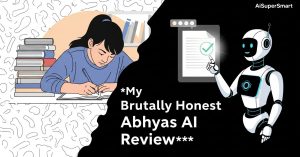The world woke up to a dramatically different reality this weekend. As I write this from our newsroom, alerts are still flooding in about what many are calling the most dangerous escalation in Middle Eastern conflict since the Iraq War. President Donald Trump’s decision to bomb Iranian nuclear facilities has sent shockwaves across the globe, while other stories that would normally dominate headlines are getting buried beneath the chaos.
But here’s what’s really happening behind the scenes – and why you need to know about it.
The Strike That Changed Everything
Saturday morning felt different. I’d been tracking tensions for weeks, but nothing prepared us for Trump’s announcement. Standing at the White House podium with that familiar stern expression, he delivered news that made my blood run cold: “The United States has successfully targeted three Iranian nuclear facilities – Fordow, Natanz, and Isfahan.”
The room erupted. Reporters shouted questions. Security looked tense. And somewhere in Tehran, air raid sirens were probably wailing.
“Iran must make peace, or face more attacks,” Trump continued, his words carrying the weight of potential global catastrophe.
The numbers coming out of Iran are heartbreaking. At least 35 Iranian Air Defense Force personnel didn’t make it home to their families this week. These weren’t just statistics on a screen – these were people with wives, children, dreams. High-ranking military officials among them, according to Iran’s Student News Network.
I’ve covered conflicts before, but there’s something different about this one. The UN isn’t just expressing “concern” – they’re warning of a “spiral of chaos.” When diplomats start using words like that, you know we’re in uncharted territory.
Meanwhile, Above the Clouds…
Here’s what struck me as almost surreal – while bombs were falling in Iran, a rocket was launching from Florida. The Axiom Space Mission 4 lifted off from Kennedy Space Center overnight, carrying four people who probably never imagined they’d be making history during such turbulent times.
Among them are the first people from India, Poland, and Hungary to visit the International Space Station. I spoke to families of the crew members earlier today. Despite everything happening on Earth, there was pure joy in their voices. “This is what humanity can achieve when we work together,” one father told me, tears in his eyes.
Related Posts
It’s a powerful reminder that even when our world seems to be tearing apart, we’re still reaching for the stars.
The Diplomatic Chess Game Nobody Saw Coming
Politics never stops surprising me, and this week was no exception. Belarus – yes, Belarus – just pulled off something nobody predicted. President Alexander Lukashenko pardoned several opposition figures, including Siarhei Tsikhanouski. The kicker? It was brokered by U.S. special envoy Keith Kellogg.
When I first heard this, I had to double-check my sources. This is the same Lukashenko who’s been cracking down on opposition for years. But sometimes, global pressure works in mysterious ways.
Even more unexpected? Pakistan announced they’re nominating Trump for a Nobel Peace Prize. I nearly spilled my coffee when that news alert came through. They’re citing his mediation during the India-Pakistan conflict. It’s a strange world where a president can bomb nuclear facilities and get nominated for a peace prize in the same month.
The Student Crisis Nobody’s Talking About
But here’s a story that’s been haunting me all week, one that hits close to home for millions of families. While we’re all focused on international drama, there’s a quiet crisis unfolding in universities across the globe.
I interviewed Elsie McDowell, a university student whose story represents an entire generation that got lost in the shuffle. Picture this: you’re 15 years old, celebrating what you think is two weeks off school due to COVID. Three years later, your education has been turned upside down, your exams cancelled twice, and you’re entering university with gaps in your knowledge that nobody wants to acknowledge.

“People call us lazy for using ChatGPT,” Elsie told me during our phone conversation. “But they don’t understand what we’ve been through.”
She’s right, and the statistics back her up. Seventy percent of universities still use online assessments five years after COVID. Students are working part-time jobs at record rates – 68% of them – just to survive financially. They’re the first generation that will pay back student loans for 40 years instead of 30.
“We’re not cheating because we’re lazy,” she explained, her voice carrying frustration that resonated with me as a parent. “We’re using every tool available because the system has failed us.”
The Heatwave That’s Literally Killing People
Climate change isn’t waiting for us to solve our political problems. Brutal heatwaves are hammering the United States, with temperatures soaring past 100 degrees in multiple states. It’s not just uncomfortable – it’s deadly.
Just yesterday, tragedy struck Lake Tahoe. Six people lost their lives when a boat capsized, two others still missing. Ten people went out for what should have been a normal day on the water. Only two came home safely.
These aren’t just statistics. These are families destroyed, communities mourning, search and rescue teams working around the clock in dangerous conditions.
Gaza: When Even Helping Hurts
The situation in Gaza continues to break hearts around the world. This week, 31 Palestinians were killed and 170 injured while trying to receive humanitarian aid in Gaza City. Think about that for a moment – people died trying to get help.
An American-funded aid distribution center became a scene of tragedy. When even humanitarian assistance becomes dangerous, you know we’ve reached a new low in human suffering.
Big Brother Is Watching (For Real This Time)
On the domestic front, the Department of Homeland Security just rolled out something that should worry every American. Working with DOGE (yes, that DOGE), they’ve created a tool that can supposedly check the citizenship status of almost every American.
Privacy advocates are sounding alarms, and frankly, they should be. When government agencies can instantly access this kind of information about citizens, we’re entering territory that would make George Orwell nervous.
The AI Governance Nightmare
Here’s something keeping world leaders awake at night: how do you govern artificial intelligence when countries can’t even agree on basic diplomatic principles? After 2024’s election chaos across multiple continents, 2025 was supposed to be about international cooperation on AI regulation.
Instead, we have nations bombing each other while simultaneously trying to prevent AI from becoming humanity’s next existential threat. It’s like trying to organize a neighborhood watch while your house is on fire.
What This All Means for You
I’ve been a journalist for over two decades, and I’ve never seen a moment quite like this. We have direct military confrontation between major powers, humanitarian crises deepening, climate disasters accelerating, and an entire generation of students struggling to get an education in a system that seems designed to fail them.
But here’s what gives me hope: humans are remarkably adaptable. While tensions escalate in some regions, we’re seeing diplomatic breakthroughs in others. While political systems strain, young people are finding creative solutions to survive and thrive. While Earth burns, we’re still reaching for the stars.
The next few weeks will be crucial. Iran’s response to the U.S. strikes could determine whether this escalates into something much worse or becomes a turning point toward resolution. International space cooperation continues to prove that humanity can work together when we choose to. And maybe, just maybe, the student voices demanding change will finally be heard by the adults making decisions about their futures.
The Bottom Line
As I finish writing this, news alerts keep popping up on my phone. The world is changing faster than we can process it. But that’s exactly why we need to stay informed, stay engaged, and remember that behind every headline are real people with real lives hanging in the balance.
Tomorrow will bring new crises, new breakthroughs, and new challenges. But it will also bring new opportunities to do better, to be better, and to build the kind of world we want to leave for the next generation.
The students struggling with AI and debt, the families of those lost in conflicts and accidents, the leaders making decisions that affect millions – they’re all counting on us to pay attention, to care, and to act.
The question isn’t whether the world is changing. It’s whether we’re ready to change with it.
This is breaking news. We’ll continue updating this story as events develop. What do you think about these developments? The world is watching, and every voice matters.




